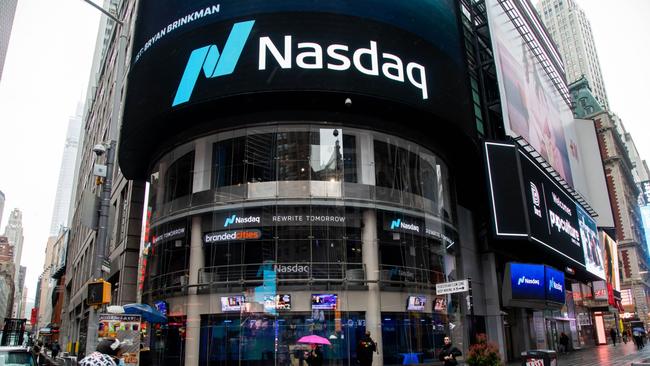ETF tech wreck raises hard questions for favoured sector
Everyday investors poured money into ‘bandwagon’ index funds — but did they know what they were buying?

Technology-flavoured Exchange Traded Funds are rapidly emerging as a disaster zone for investors, with many of the newer-style “thematic” funds emerging as the worst performers in the market.
The appalling returns turned out by some high-profile funds now risk undermining the sector’s chosen role as a popular lower risk option for everyday investors.
Moreover, the blowout raises serious questions on labelling and transparency in an industry that has enjoyed a dream run until very recently.
Exchange Traded Funds – where a basket of stocks is offered with very low management fees – gained major support from investors and financial advisers in recent years.
But a push inside the sector to launch “trend” funds based on themes such as digital currencies — and increasingly exotic products where big bets are taken on market outcomes — is now creating unprecedented losses for investors.
A standout example is the BetaShares Crypto Innovators fund, that broke first day records on the ASX in 2021 as investors rushed to buy anything that offered an avenue into digital assets. The fund is now showing massive losses, with its price down by 71 per cent over the year to date.
However the BetaShares fund is not the worst performer this year – that unwanted title goes to another ETF operating in the same area: the Cosmos Global Digital Miners ETF is down 76 per cent.
Across the ETF sector the worst performers are invariably linked with technology or digital assets, though two funds make it into the top 10 worst performers that are general “growth” focused investments – the BetaShares Geared US Equity Fund and the Hyperion Global Growth Companies Fund.
Investors may also be shocked by the horror show among ETFs which captured investor attention based on a narrow theme: the shortage of semiconductors clearly brought investors into ETFS Semiconductor ETF, which has fallen by around a third.
Separately, the BetaShares Global Robotics and AI ETF is down by nearly 40 per cent.
Under current arrangements ETFs of every style are lumped together: as a result the performance of conventional funds will be compared against what could be a highly speculative, geared niche investment vehicle.
Several investment market executives had openly warned investors the ETF sector would pay a high price for allowing highly speculative funds to be mixed with traditional funds that merely aim to mirror a leading index such as the ASX 200.
Chris Brycki, the CEO of Stockspot – the funds management group which specialises in ETF investing – recently put in submission to the Australian Securities and Investments Commission calling for key industry operators to “stop branding active funds based on specialised interests such as Crypto being categorised as ETFs.”
“We’ve called for reforms here to make it much more clear to investors what they are buying,” says Brycki, who says the investment market is still awaiting any serious moves to clean up regulations among local ETFs.
At a global level some of the biggest players in the industry such as Vanguard, Blackrock and StateStreet have also made some early efforts to stop exotic products being bundled together with traditional index funds. But progress in the area has clearly been slow.
Critics of “bandwagon” ETFs where investors are invited to join a hot trend such as cloud computing or robotics have circulated academic research which shows that newer ETFs invariably lag older rivals in performance terms during their early years.
A further problem for the “bandwagon” funds is that liquidity can dry up and prices become even more volatile among niche sectors in the market.
Even among the more conservative “plain vanilla” ETFs the widespread falls in most investment markets this year has proven to be a test. Australia’s largest ETF, the Vanguard VAS ETF — which concentrates on the Top Australian listed companies — is down almost 16 per cent over the year to date.
A one-year reversal for the biggest ETFs in the market is unlikely to challenge the broader move towards passive investing.
Total assets under management in ETFs may have incurred a hit but the inflows into the sector remain strong.
However, there have also been signs that so-called active investing, where traditional fund managers charge higher fees to “actively” select stocks in their funds, could mount a comeback against the ETF brigade.
Among some of the bigger superannuation funds reporting in recent weeks, actively managed balanced funds have been outperforming indexed balanced funds.




To join the conversation, please log in. Don't have an account? Register
Join the conversation, you are commenting as Logout